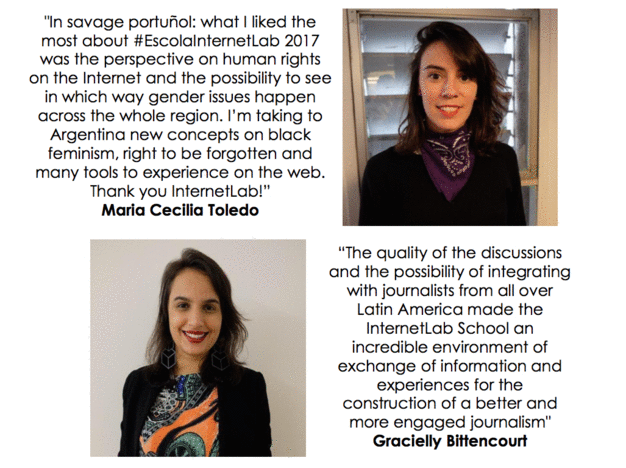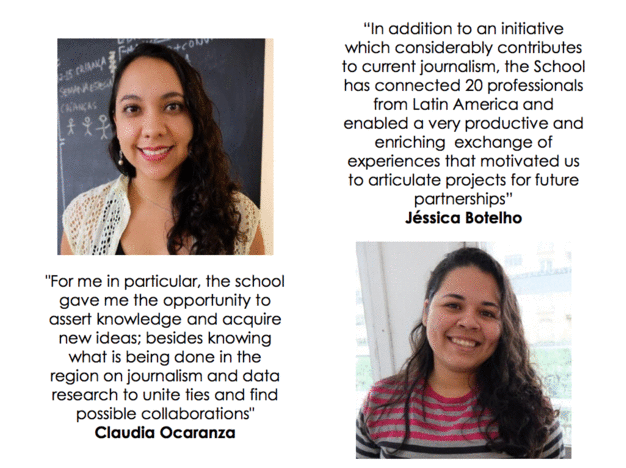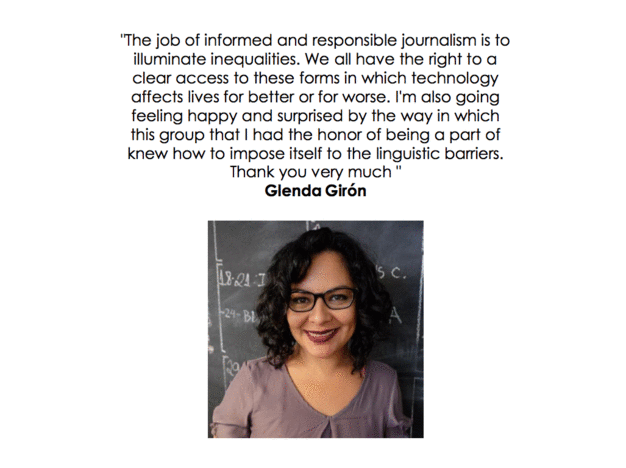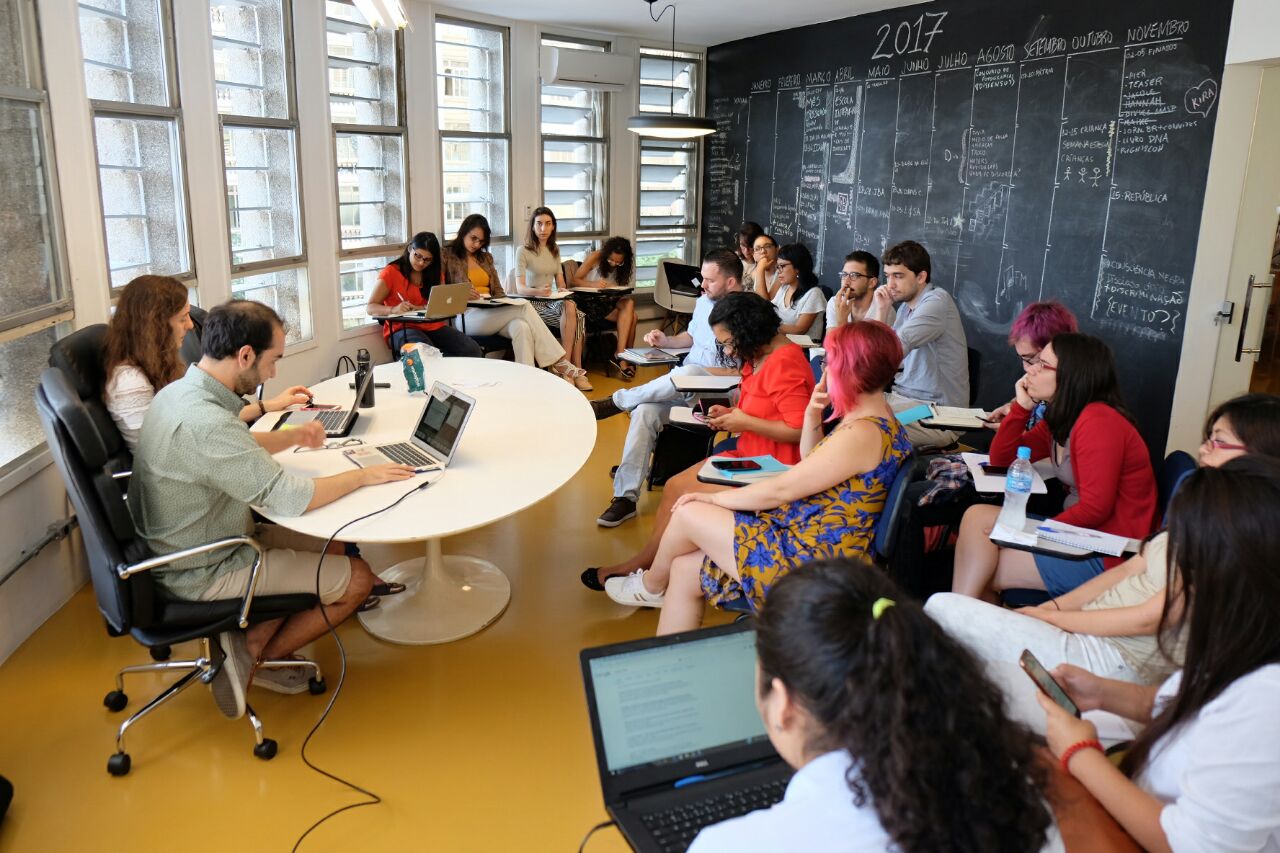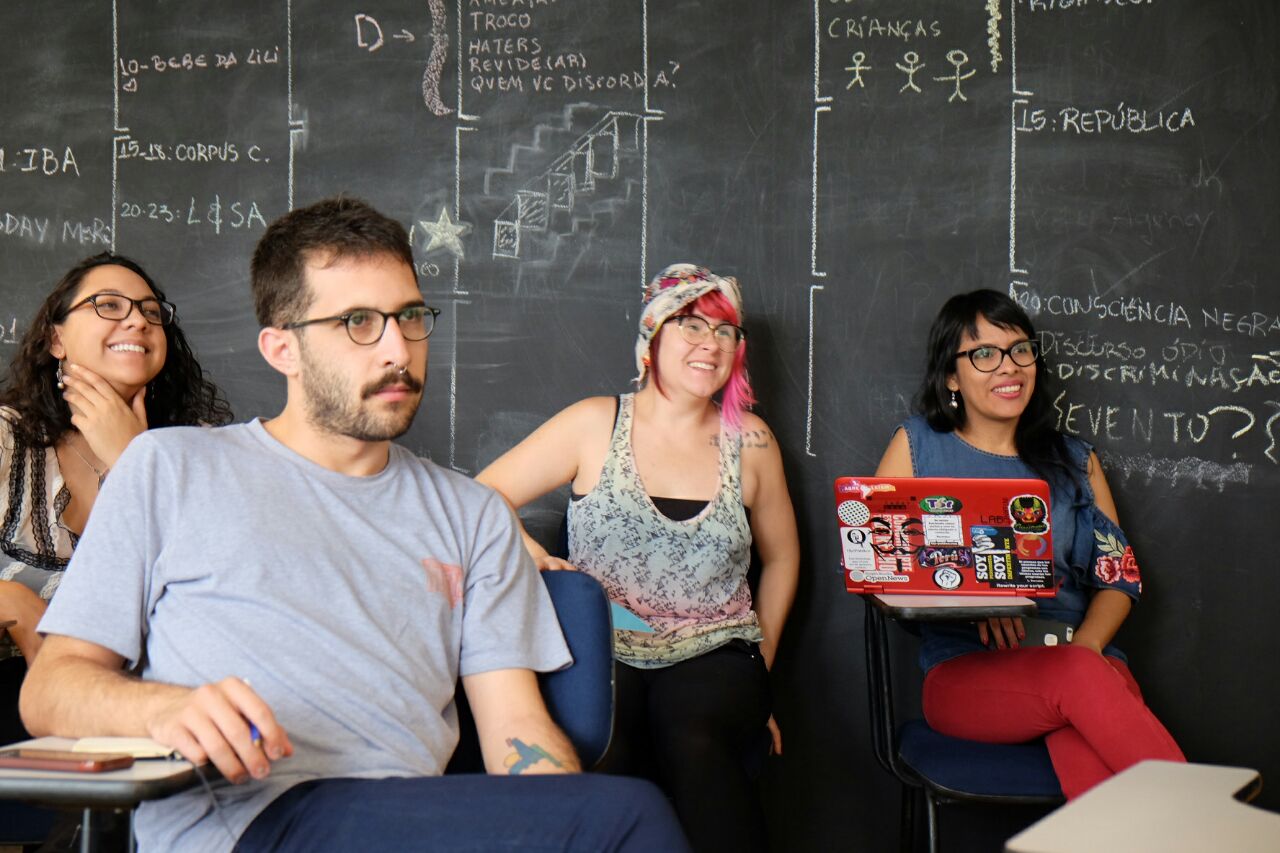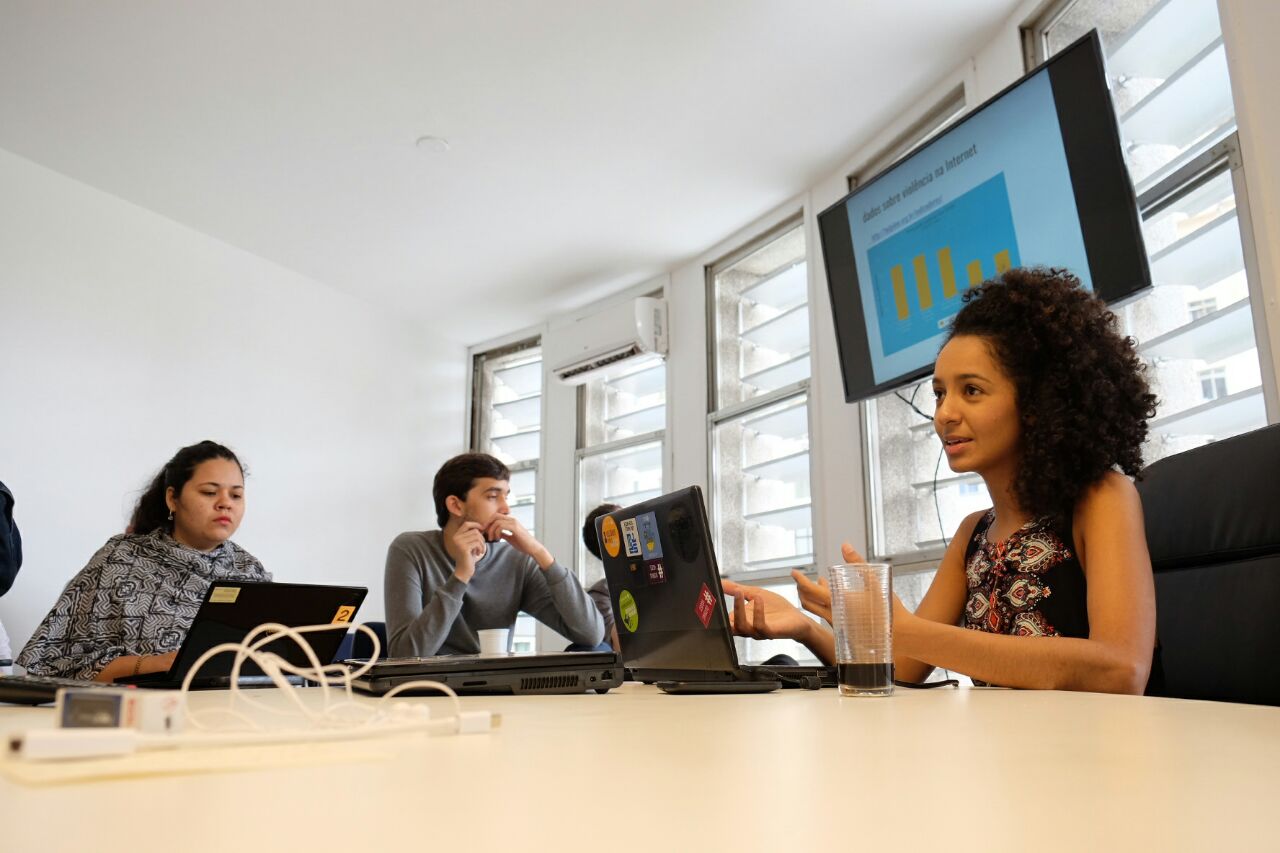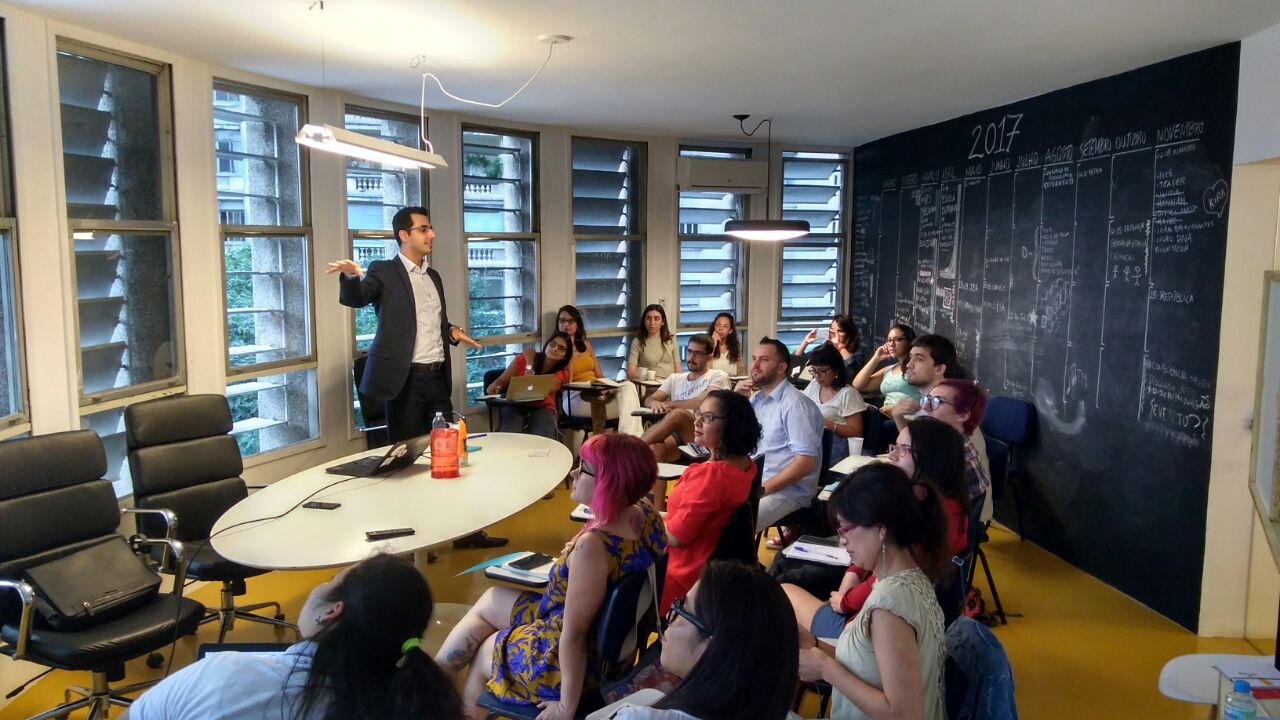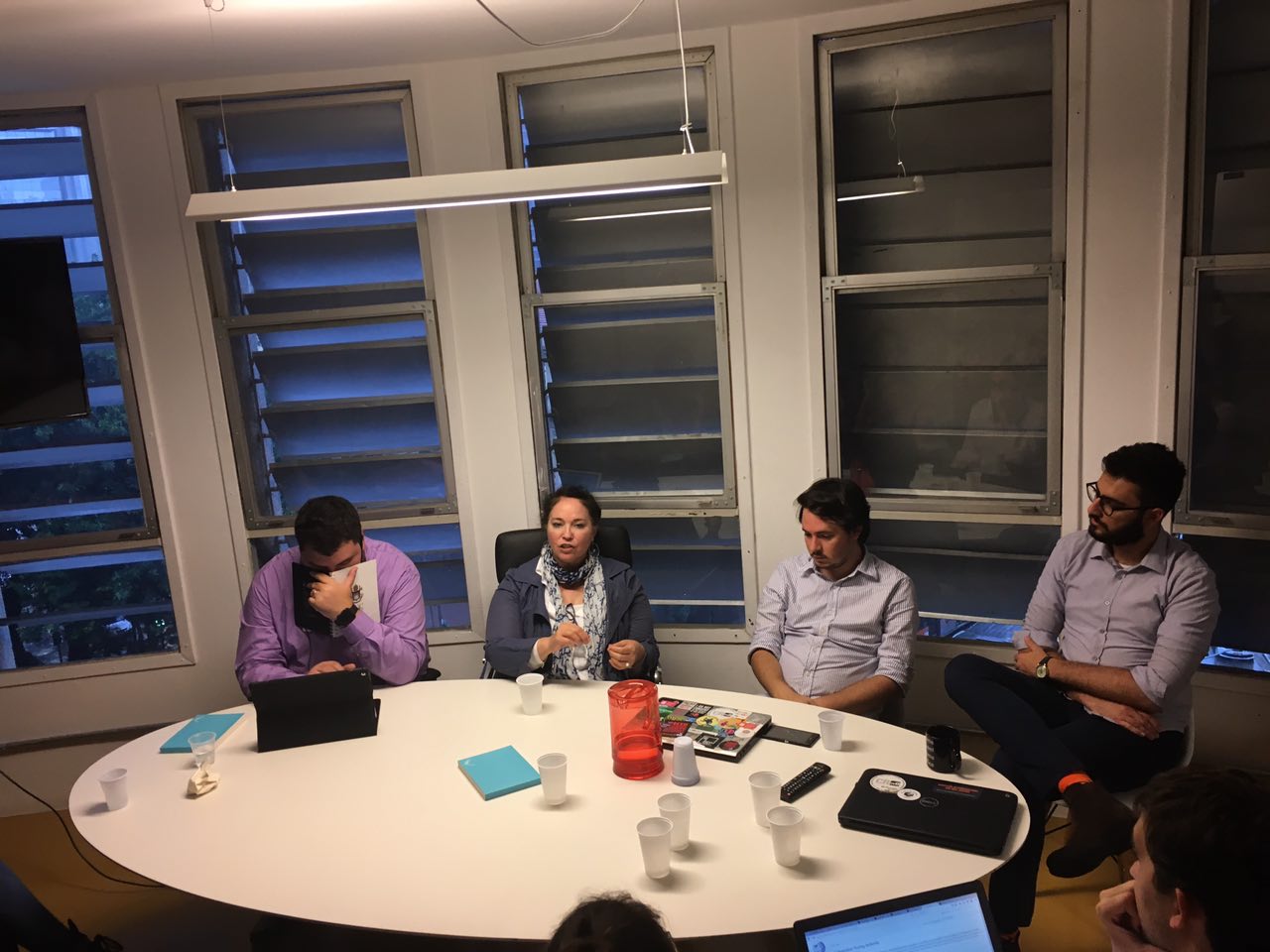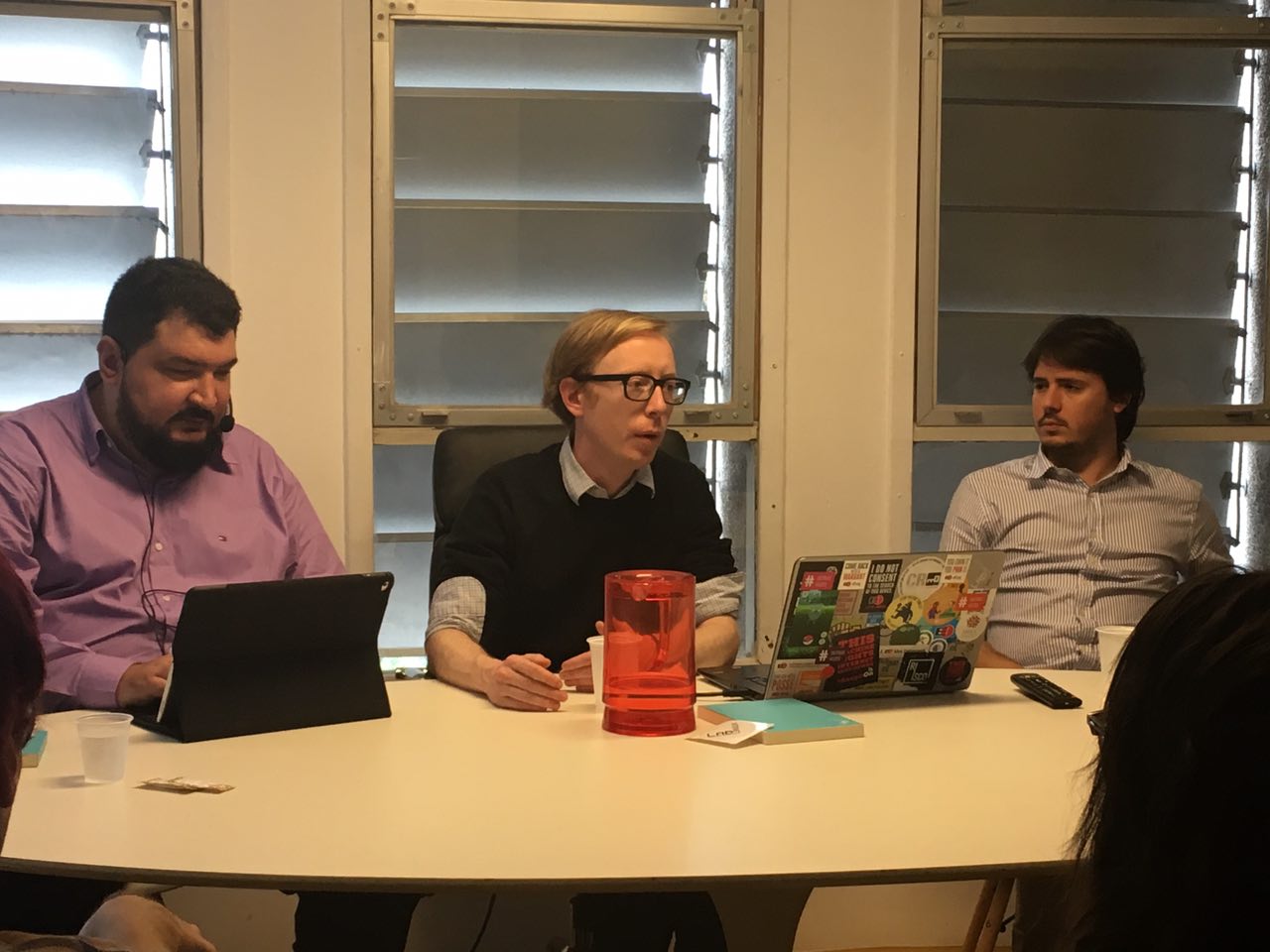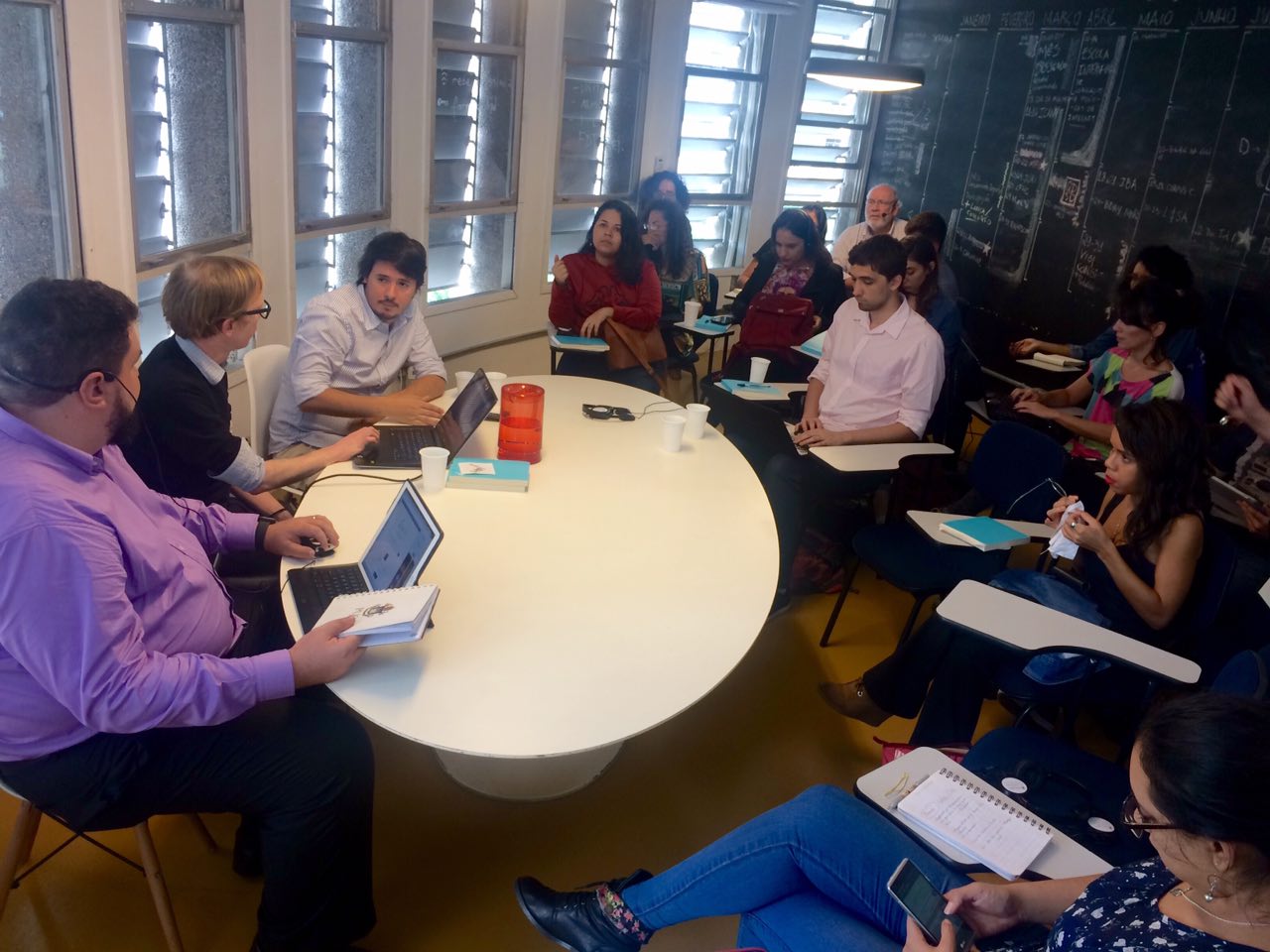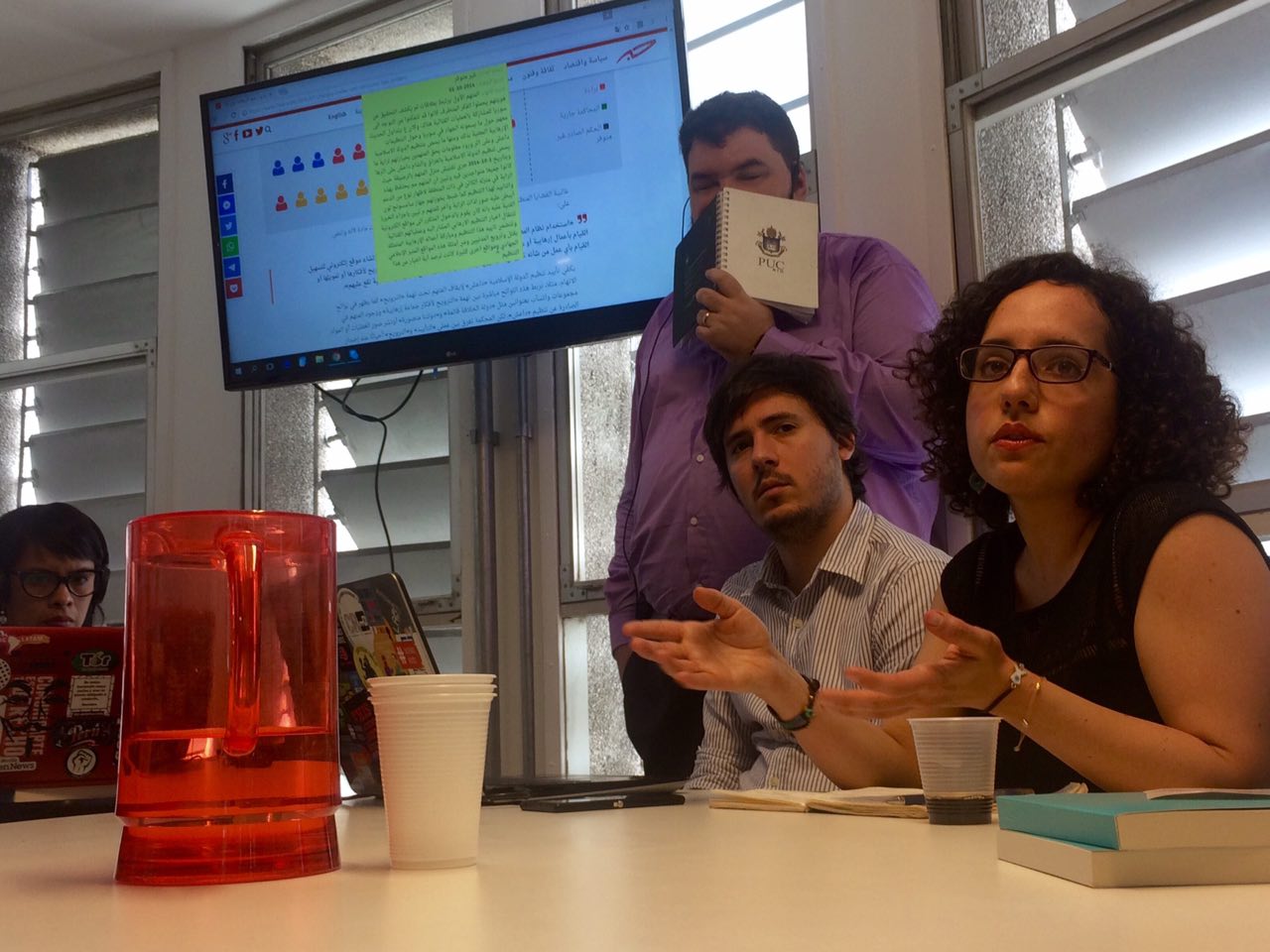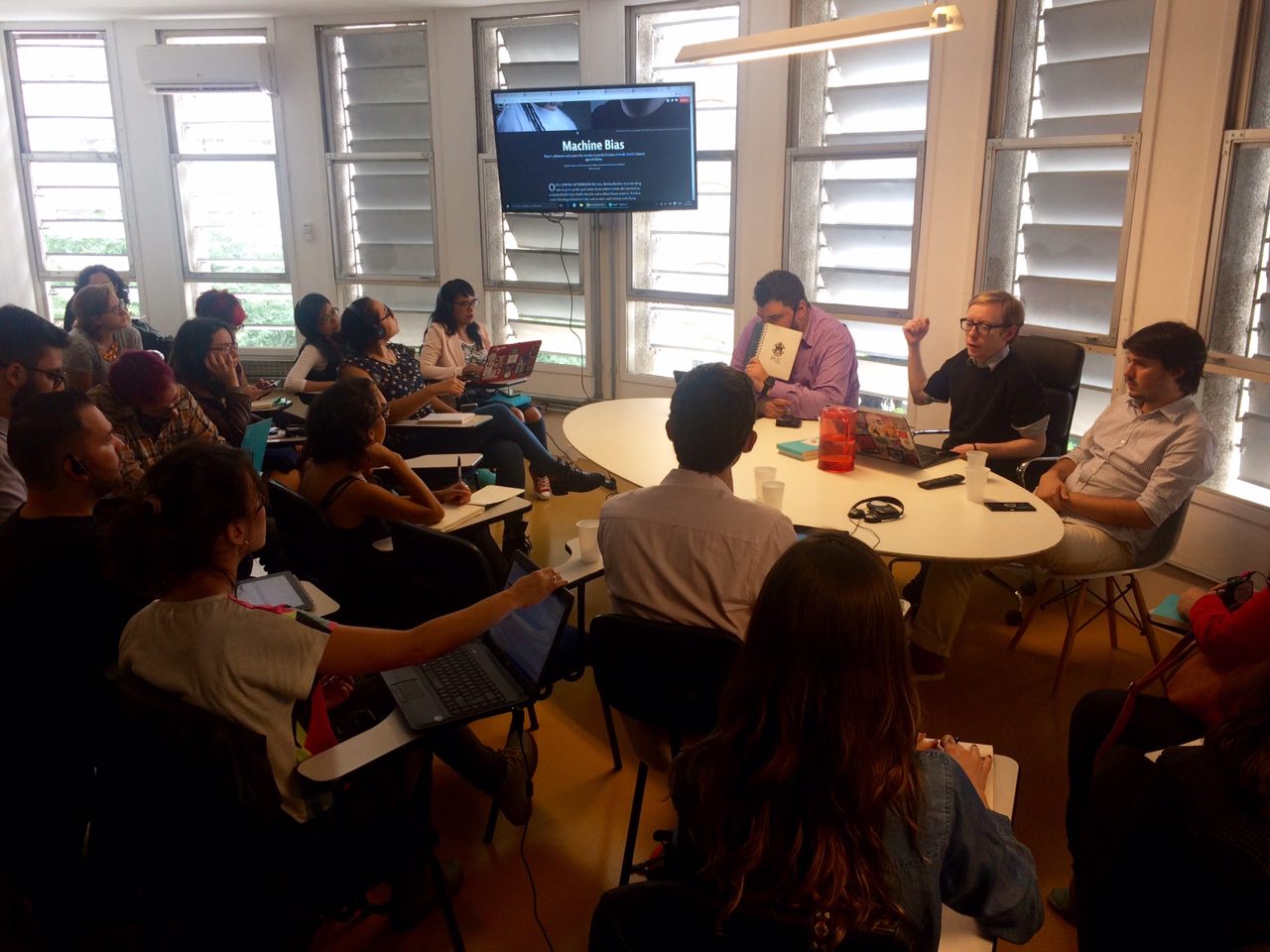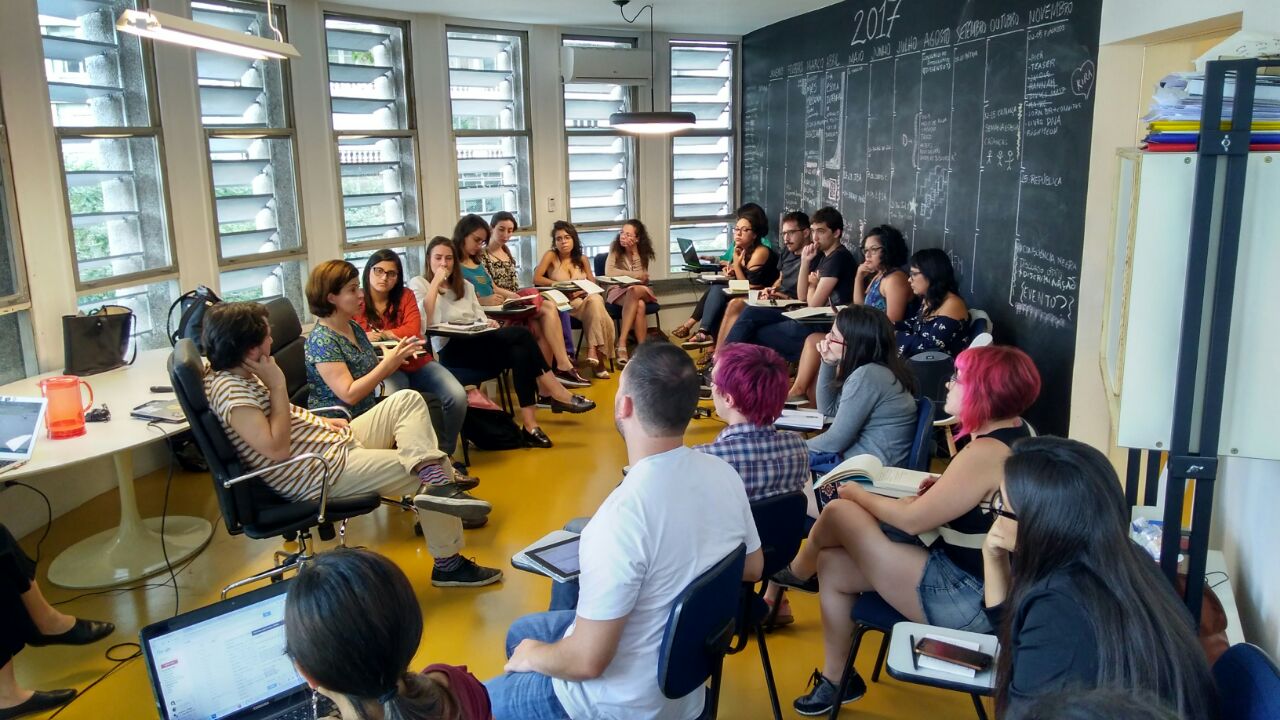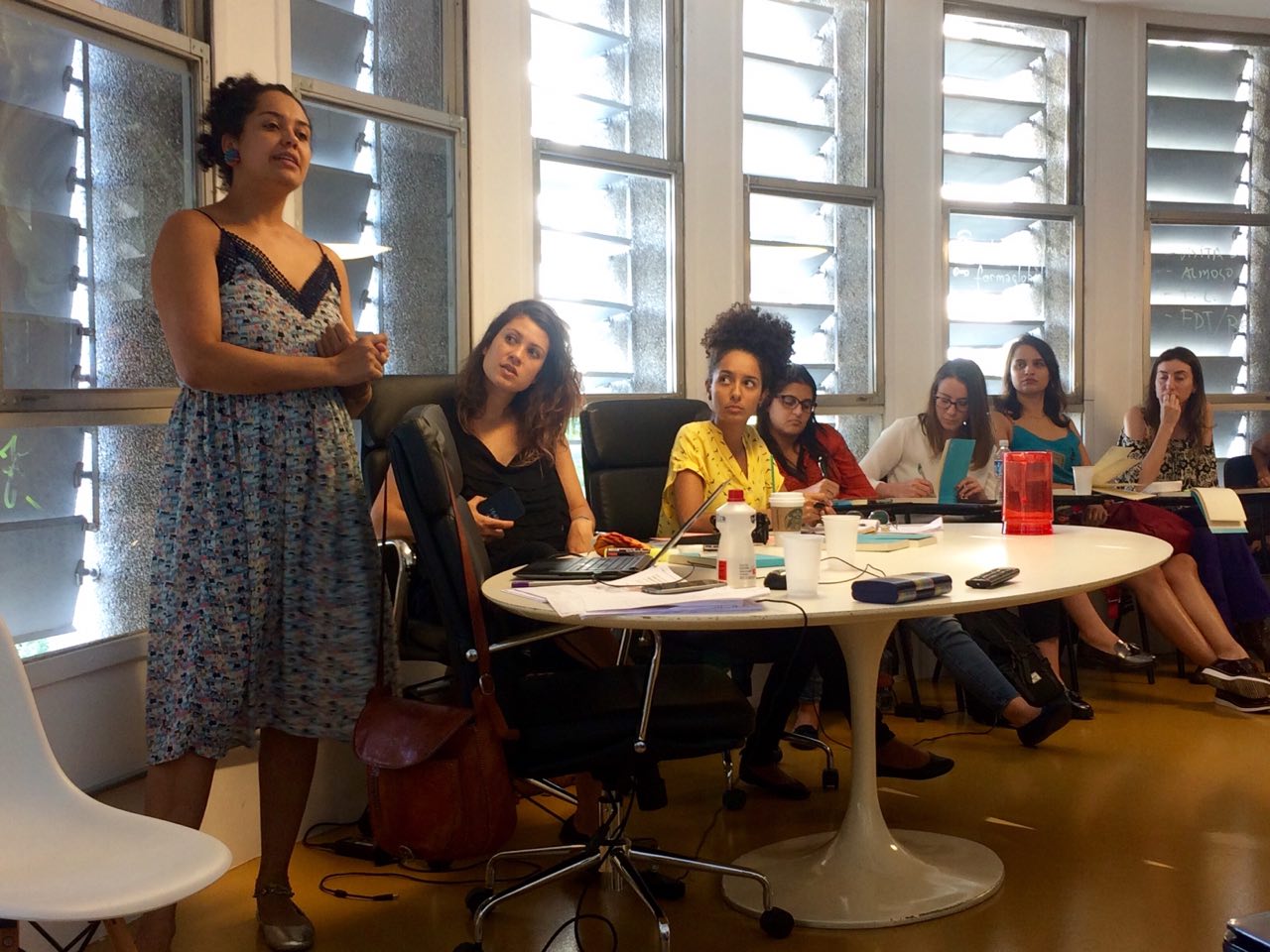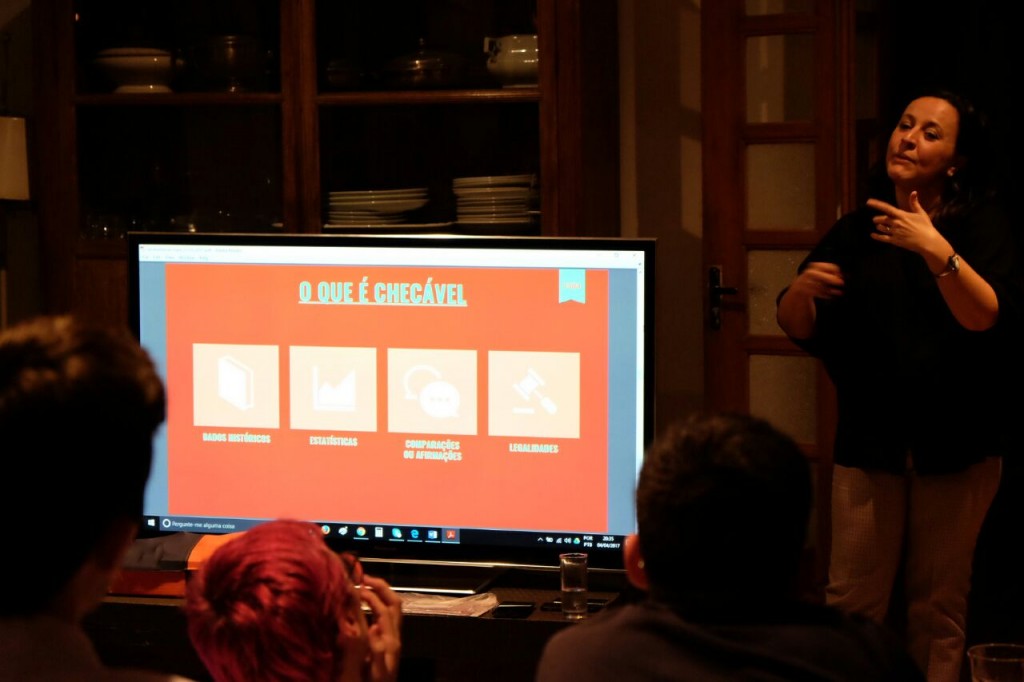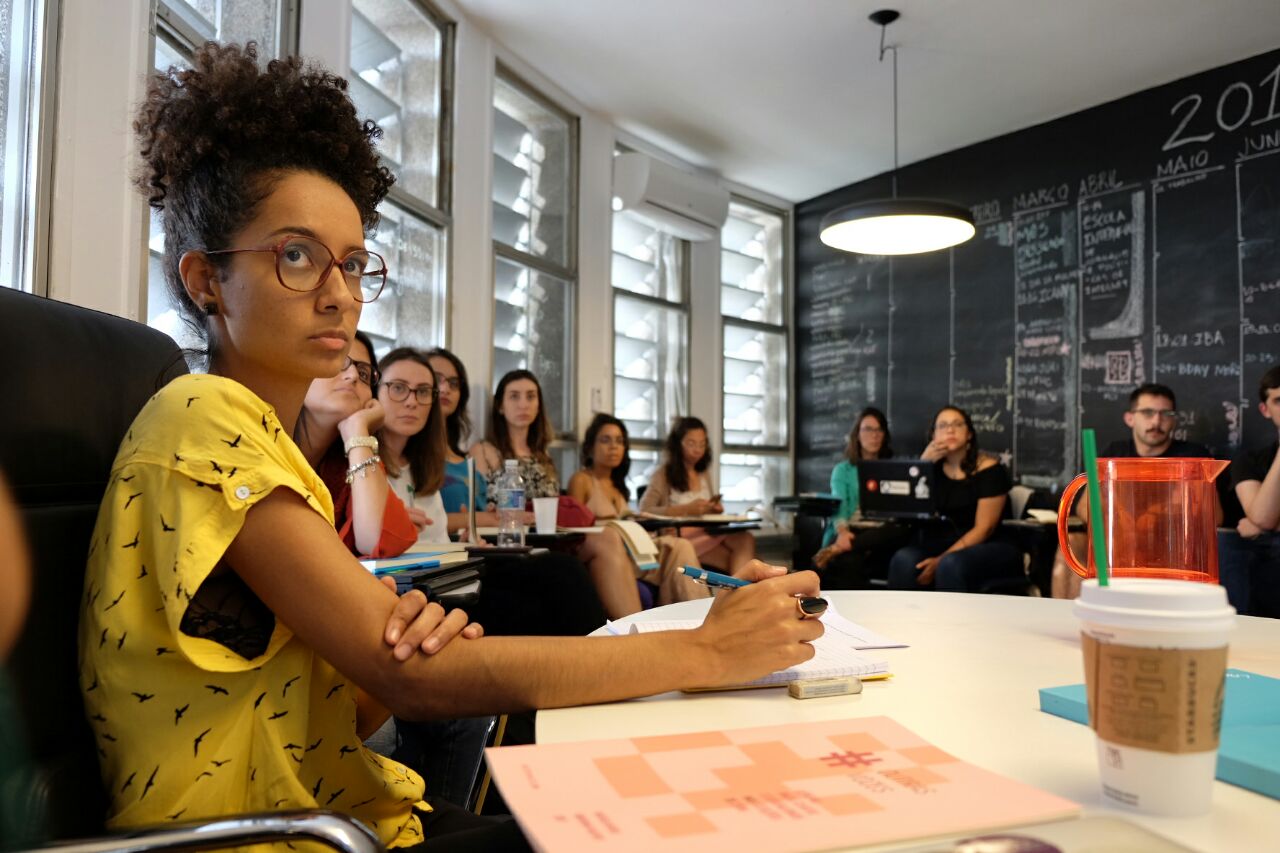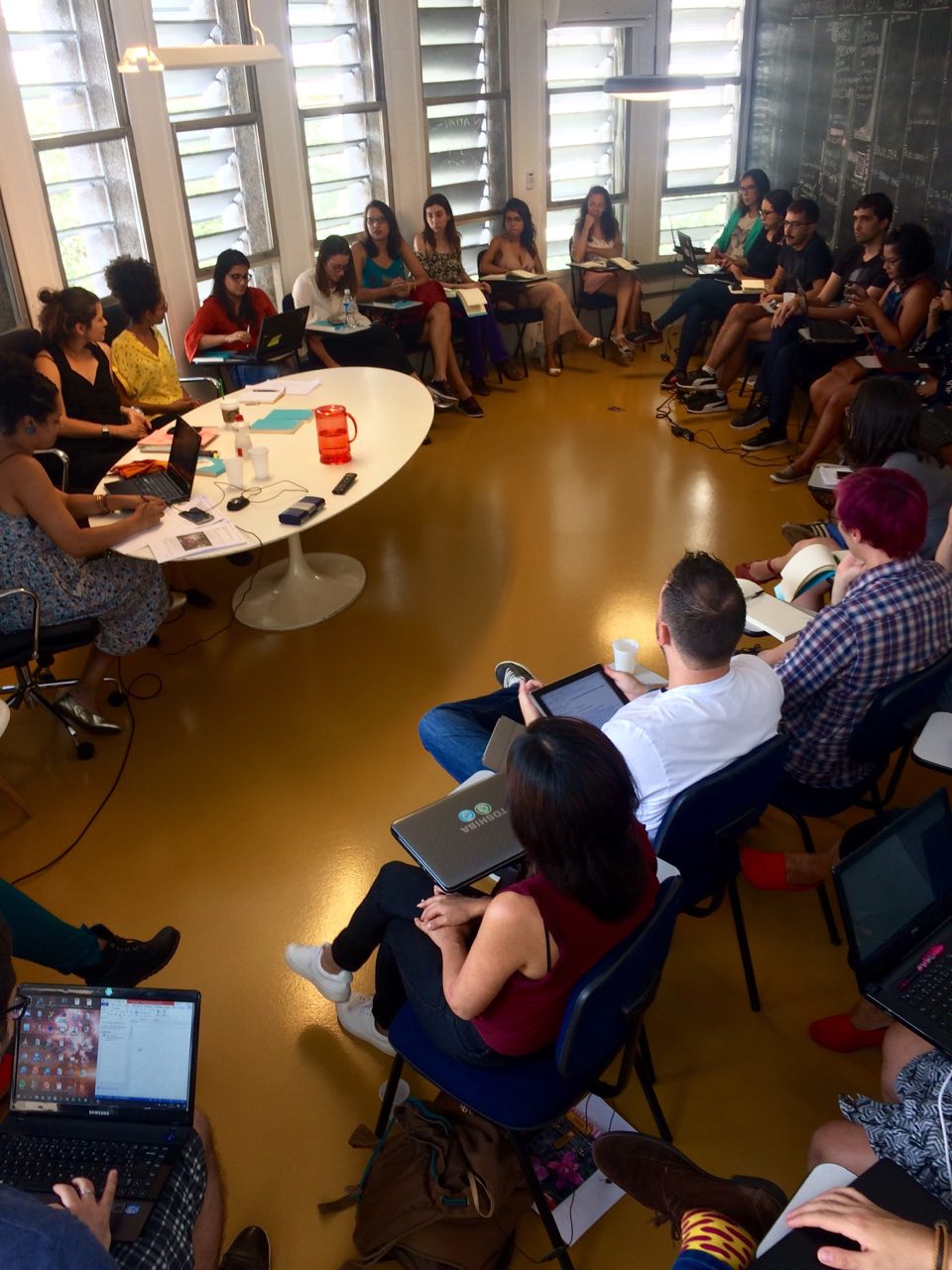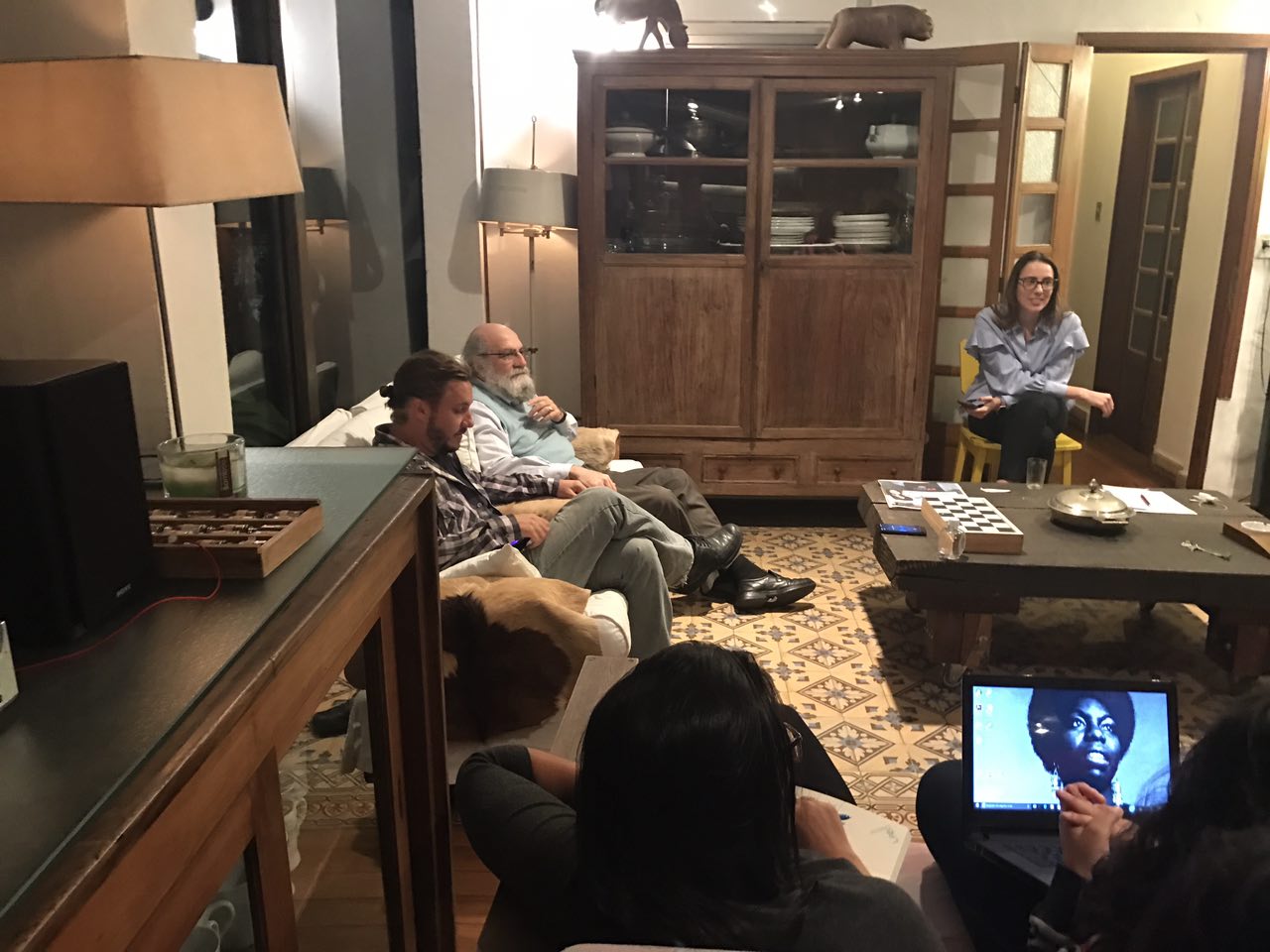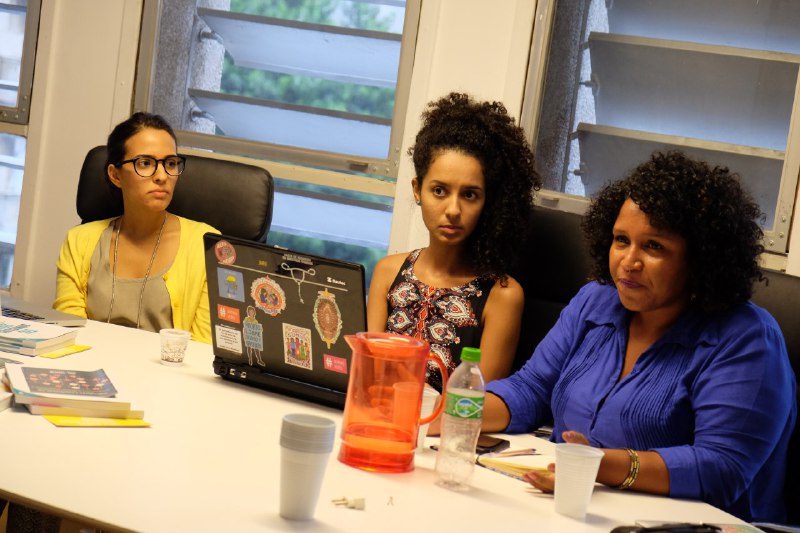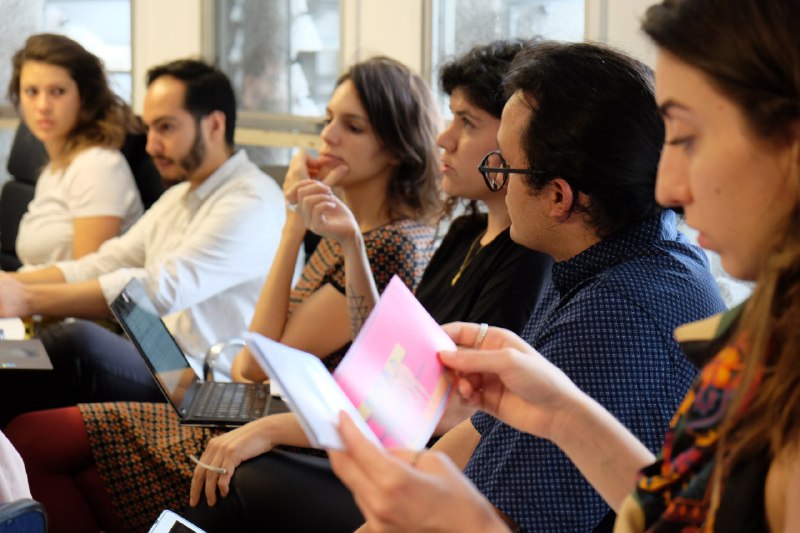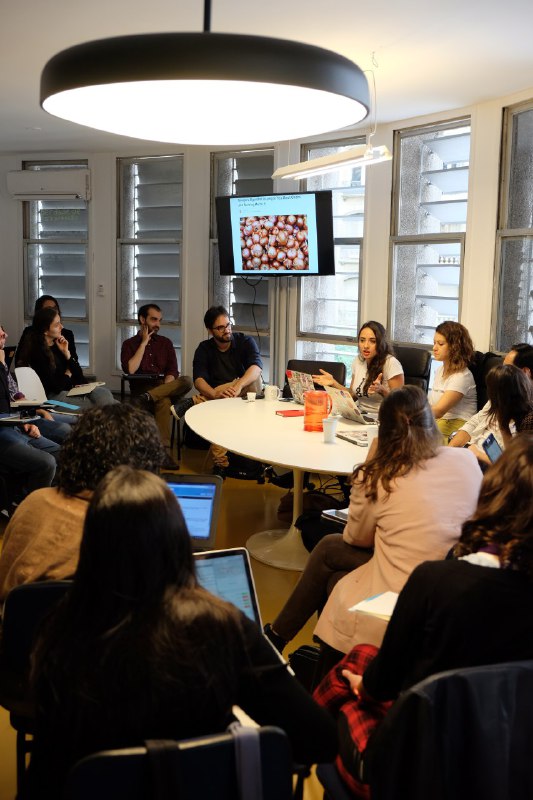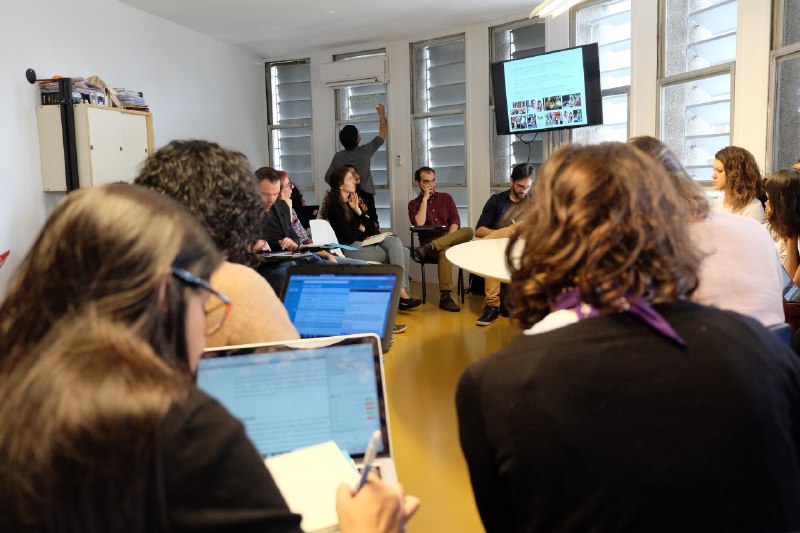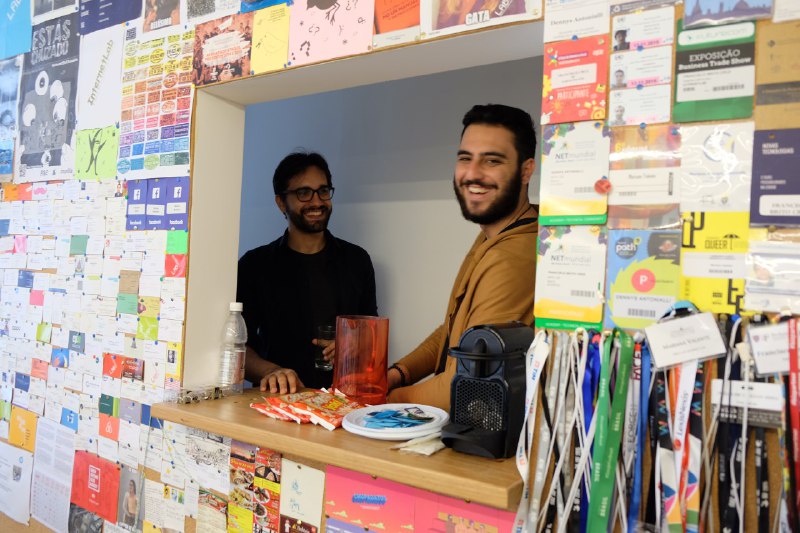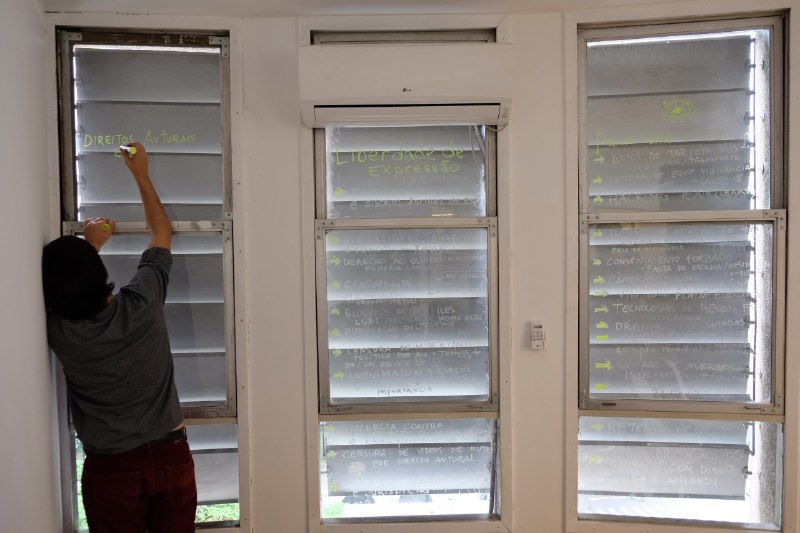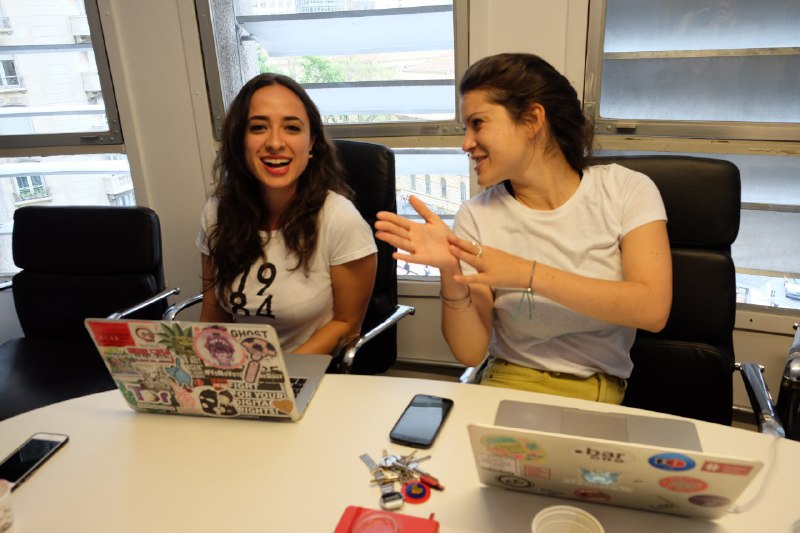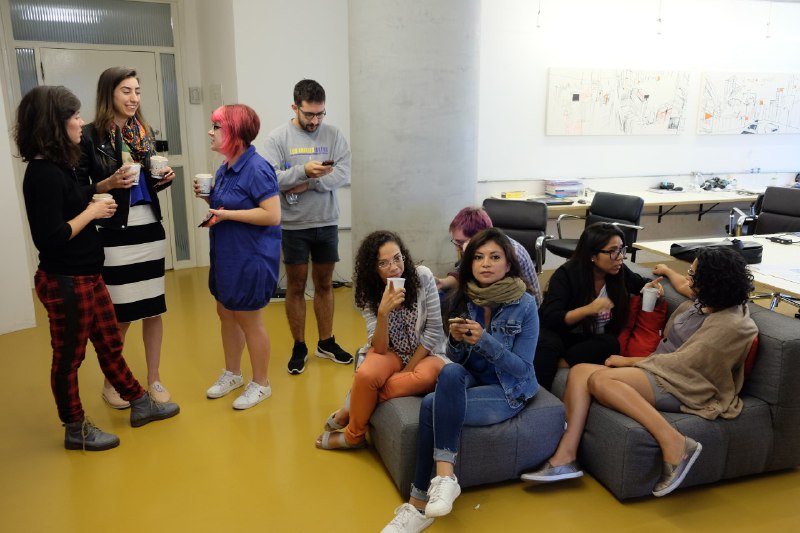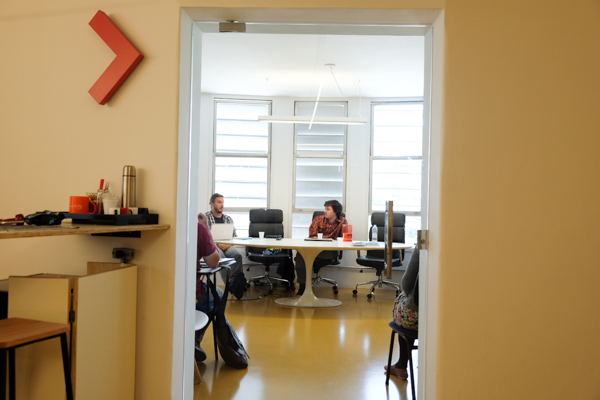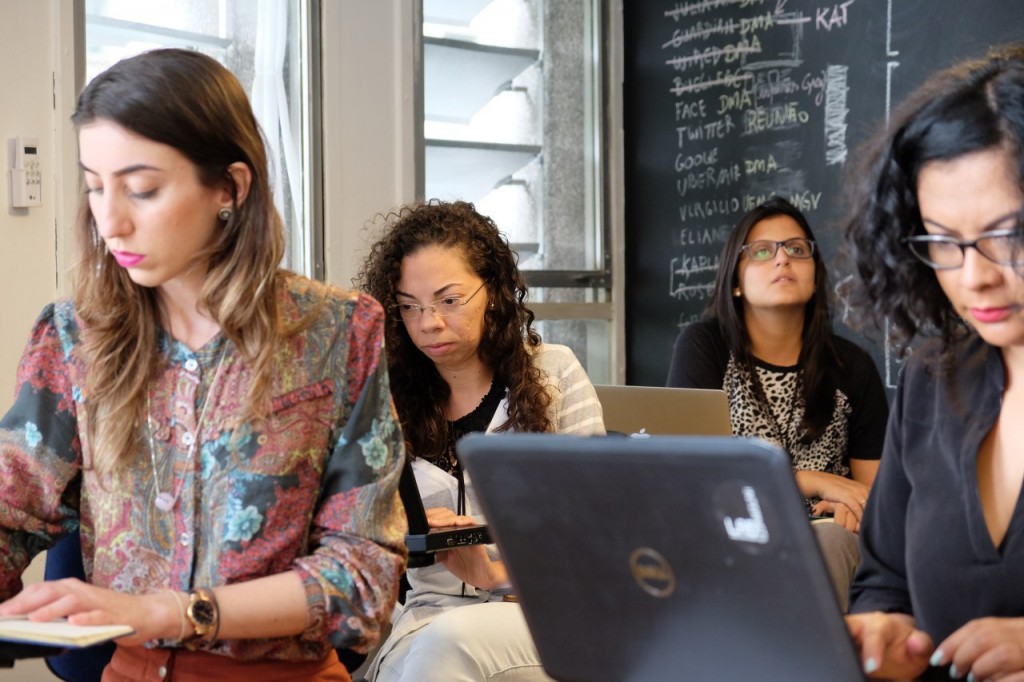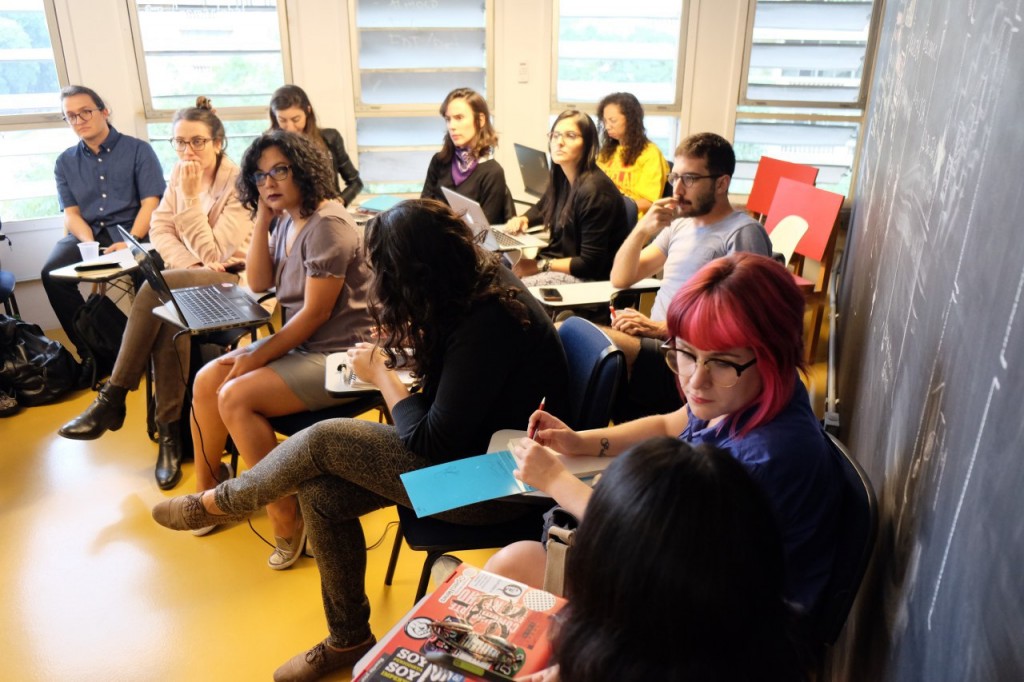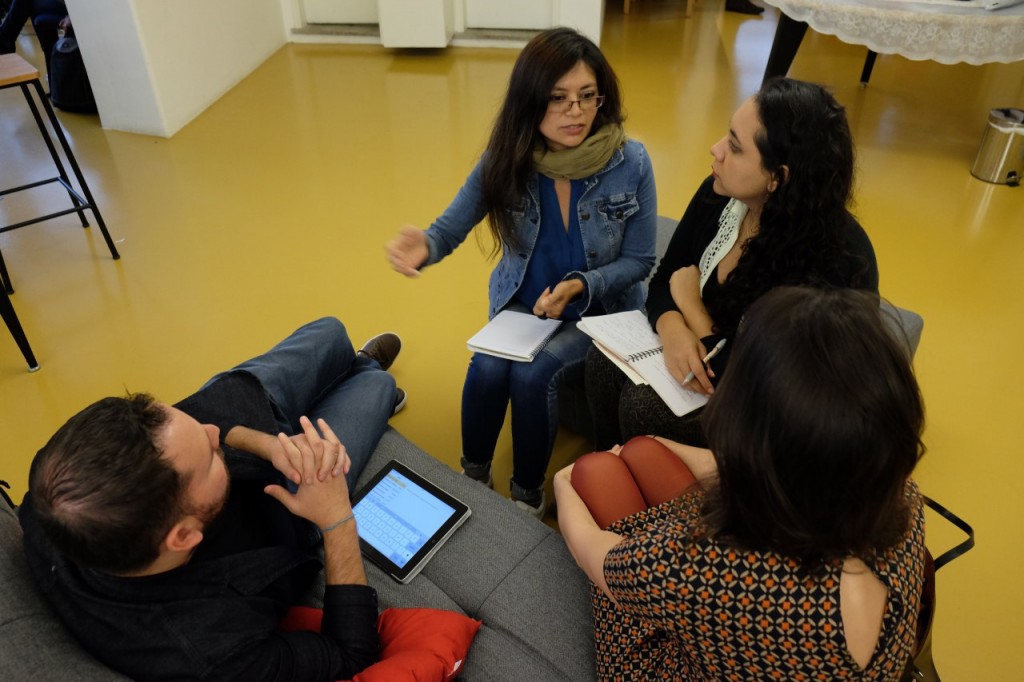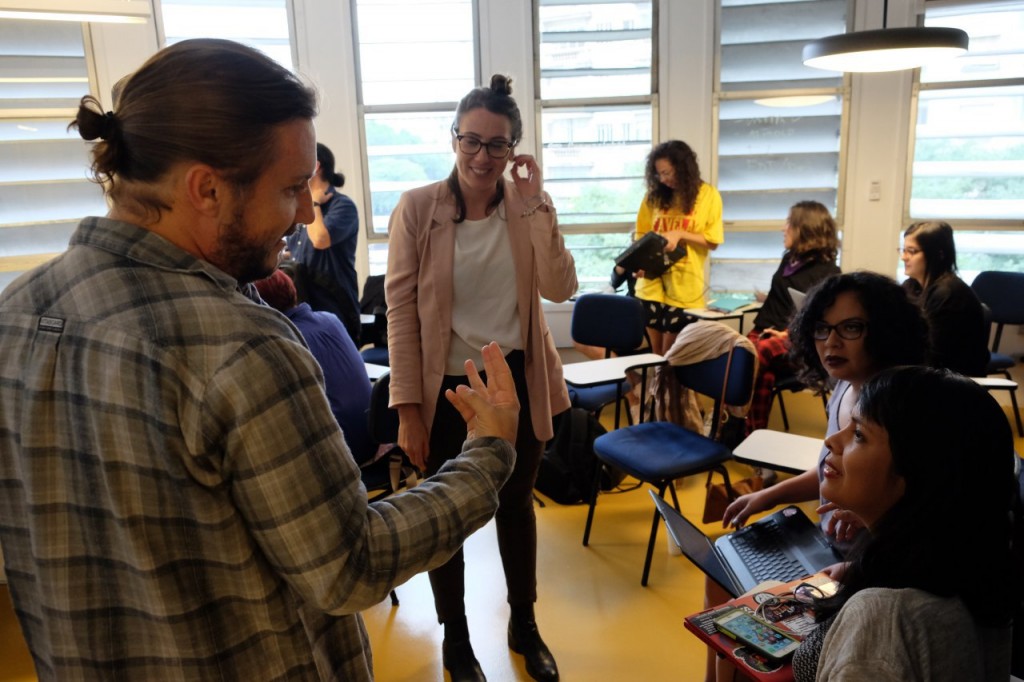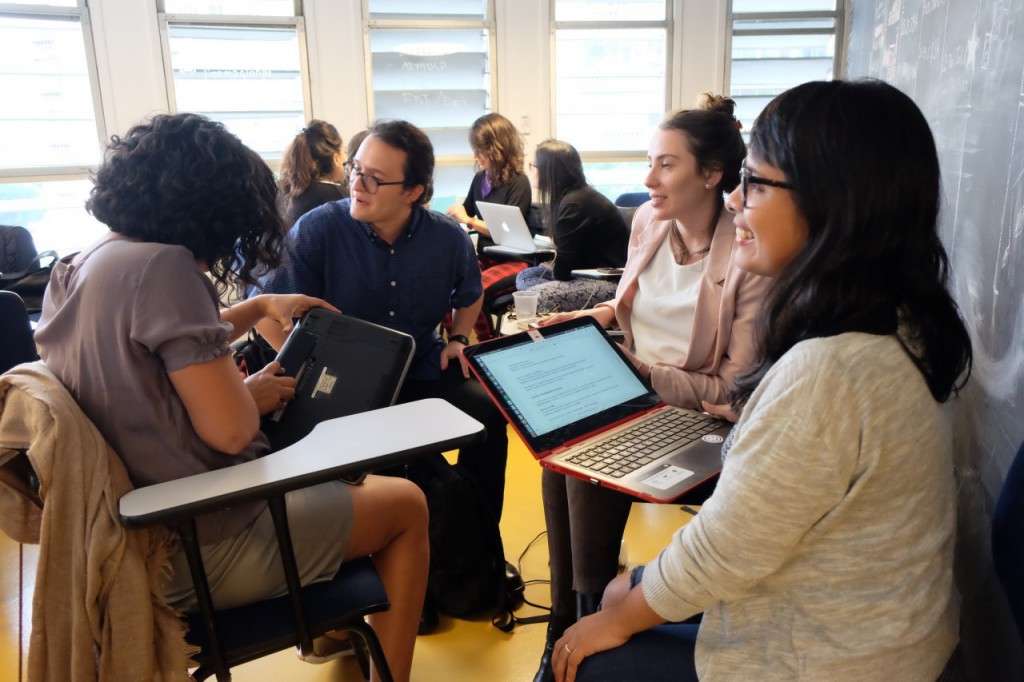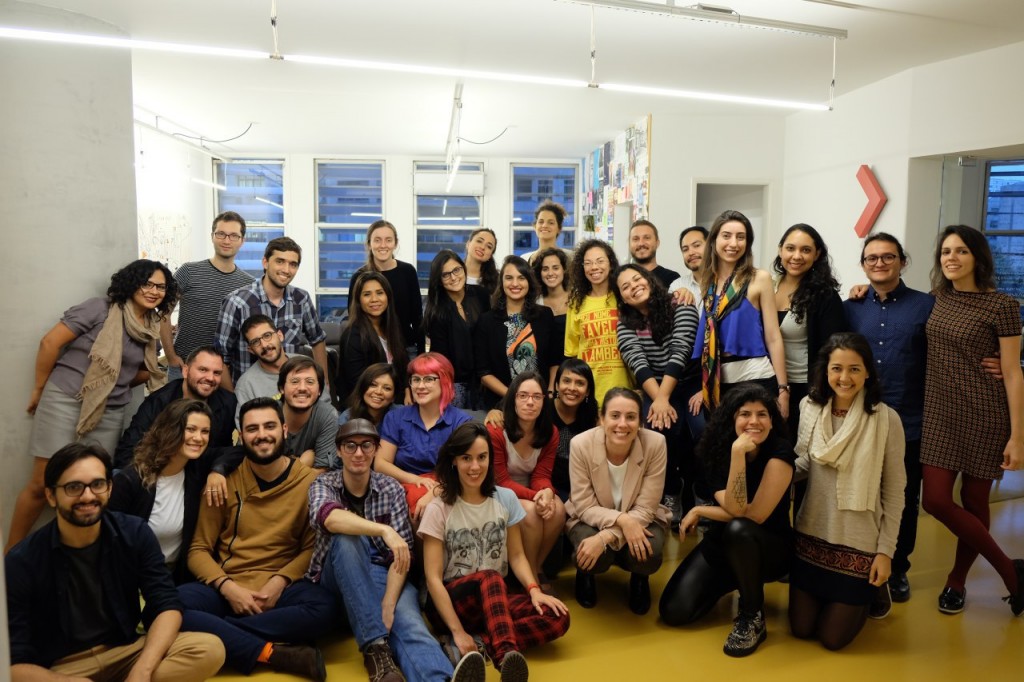
How to tell stories of the future? The experience of #EscolaInternetLab2017
After two weeks of hard work, the first edition of the InternetLab School “Telling the stories of the future: journalism and internet policies” came to an end. From day one, journalists from Brazil and other Latin American countries participated in workshops, debates and seminars, with specialists from different areas. In spite of the different languages and accents, the linguistic barrier was easily overcome, which generated high-level discussions and interventions.
The School was structured around three thematic axes: (1) understanding the struggles (Internet, politics, stories, trends); (2) telling stories (databases, leakings, fact-checking); and (3) considering the consequences (Big data, bubble effect, engaging readers, security). See below a report on how these axes were approached during the School’s activities.
International guests
In a day dedicated to the discussion of global issues, our invited international journalists talked with the School’s participants about the research and writing processes of their articles. Jordanian journalist Reem Al Masri, of the online magazine 7iber spoke about the difficulties of journalistic coverage in the Middle East and North Africa regions. Jeff Larson, ProPublica journalist and a 2017 Pulitzer Prize finalist talked about his experience with investigative journalism. He especially approached the big data and algorithm area, focusing on the writing of the award-winning article “Machine bias”, which identified racism problems in the use of a software for preventing crimes in the US. The coverage of cybersecurity topics was approached by Kim Zetter, an award-winning journalist who worked for Wired magazine. She talked about her two articles on the topic: one about the security of electronic voting machines, and another about the digital weapon Stuxnet — allegedly developed by the US and Israel with the aim of sabotaging the Iranian nuclear program.
The School’s schedule included the open seminar “Telling the stories of the future: dialogues on journalism and technology”, organized in partnership with the Cásper Líbero College, where our international guests could also talk with journalism students and other people who were interested in the debate. The motto of the first panel was “New stories, old conflicts? Security, surveillance and its coverage”, with the participation of Kim Zetter, Reem Al Masri, Francisco Brito Cruz, InternetLab director, and Claudia Bredarioli, Cásper Líbero professor. In this panel, topics like journalistic coverage in conflict zones, cybersecurity, liability of intermediate parties and its relation to freedom of speech on the web.
In the second panel, the theme was “A future mediated by technology: algorithm and their challenges”, with Jeff Larson, Mariana Valente, InternetLab director, and Leandro Beguoci, director of the Nova Escola magazine. The discussions in this panel ranged from the risks and uncertainties brought by the processing of data by companies and the State, race and gender discriminations generated from algorithms, to juridical strategies for combatting revenge porn in Brazil — a research topic studied by InternetLab in the book “The Body is the Code” [in Portuguese].
Thematic workshops
To deepen the debate on themes related to the field of Internet policies, we held thematic workshops, coordinated by InternetLab’s team and invited specialists. One of the topics was how to cover cybernetic surveillance and personal data protection. Dennys Antonialli, InternetLab director, highlighted that the processing of personal data is at the base of tech companies’ business models and pointed that the collection of this data is not always consented — many companies create huge databanks on their users, from which they work on their directed ads. Jacqueline Abreu, InternetLab research coordinator, punctuated that the development of new technologies increases the surveillance power of the States and that it is important to pay attention to the available legal grounds when assessing whether this surveillance is abusive or not. Both indicated possible stories that could be told from these perspectives — from the examples of the Rio de Janeiro Olympics surveillance balloons to the examples of unexpected conclusions that some companies take from the databanks they create.
Beatriz Kira, policy watch coordinator at InternetLab, shared some results from the research line “Sharing economy and its regulatory challenges”, reporting on the compared analysis of Uber’s regulamentation in megacities around the world, and the historical research on individual transportation of passengers in the city of São Paulo — made from archives of old newspapers. The liability of intermediate parties and its relation to freedom of speech on the web was the topic of the workshop coordinated by Francisco Brito Cruz. Mariana Valente dealt with the changes that the Internet and technology brought for the world of copyright. Net neutrality and its regulamentation in Brazil was the topic of Ademir Pereira Junior’s workshop, a lawyer and researcher of the field.
Natália Neris and Thiago Oliva, InternetLab research coordinators, reflected on how to approach online gender violence and what precautions a journalist should have when covering a hate manifestation. In a day specifically devoted to discussing inequality issues, the School’s participants debated topics related to the access of Information and Communication Technologies, beyond the inequalities of accessing the job market in the areas of technology and Internet.
From journalists to journalists
Issues related to identity markers and inequalities were also approached in the workshop “A transversal look to the inequalities of class, race, gender and other social markers in journalism”, coordinated by the journalist and researcher Bianca Santana. From a theoretical perspective, the workshop proposed that intersectionality should be something all stories and not only some.
The School also debated some journalism methods and strategies. Thiago Mali’s workshop, from Abraji (Brazilian Association of Investigative Journalism), discussed data journalism techniques. Daniel O’Maley, associate editor at the Center for International Media Assistance, spoke about the difficulties in covering Internet governance. With Alexandre Matias, of Trabalho Sujo and ex-editor of Link (the technology section of the “O Estado de S. Paulo” newspaper), the journalists debated strategies for covering technology in the media and how to identify conflicts, and with Angela Pimenta, editor of the informative Bites, they talked about how to discover what is in the backstages of power and about the elaboration of Internet policies. Angela also talked about the Credibility Project, an initiative that aims to create tools to identify and certify trustable contents on the Internet, with the goal to fight fake news.
Rumors and bubbles
The topic of content reliability on the Internet had a particular attention during the School. Cristina Tardáguila, of Agência Lupa, presented the fact-checking methodology, which has been used in various parts of the world, and the challenges of checking information in Brazil. Fact-checking is one of the forms proposed to face the sharing of fake news on the web — a problem that has been drawing more attention in the public debate. This subject was also approached by Pablo Ortellado, GPoPAI coordinator, who discussed with the journalists the learnings brought by the project “Political debate in the digital environment monitor”, such as dissemination of untrue content, bubble-effect on the social networks and polarization in the virtual ambient.
Latin American dialogues
In the School’s last day, we received representatives from acting entities in the area of Internet policies in Latin America (Derechos Digitales, Coding Rights, Fundación Karisma, TEDIC, e IDEC), to discuss with the participants the main challenges and perspectives for the field in the region. In particular, we dealt with freedom of speech and information (its importance and the limit cases, such as the right to be forgotten), and issues related to privacy and surveillance, copyright in the digital environment and gender issues on the Internet. After rounds in which the most relevant topics in each represented country were discussed, the journalists got together in small groups with the Latin American guests to think about relevant stories that could be elaborated from the topics discussed.
Registers from the #InternetLabSchool2017
More details from the daily happenings of the #InternetLabSchool2017 were reported on our social networks during the days. We gathered photos of the activities and statements from some of the participants below.

